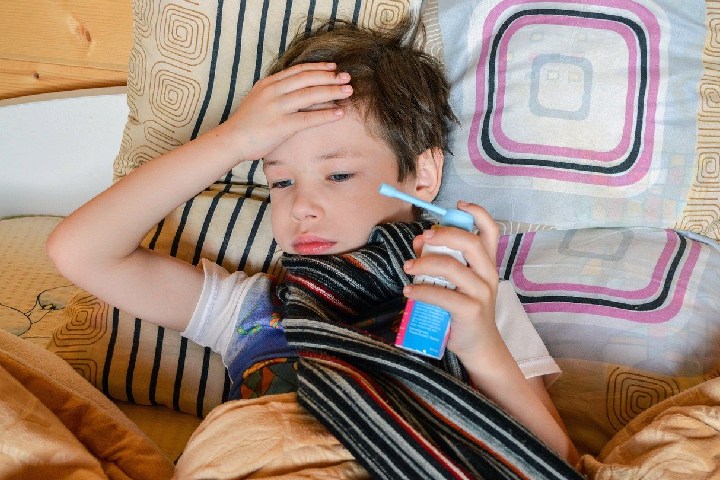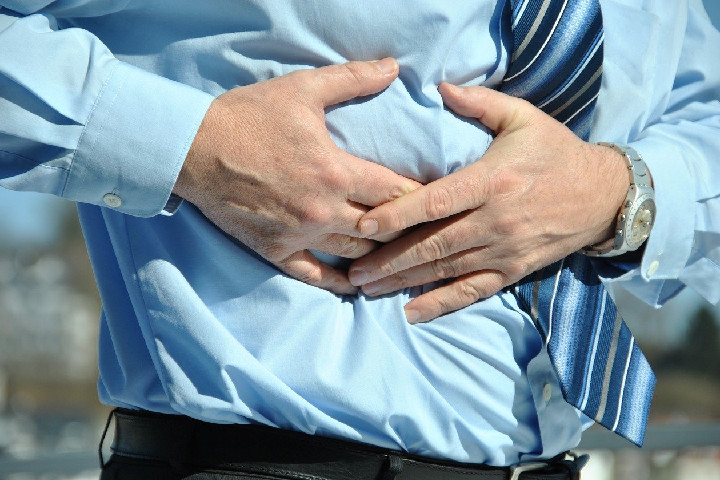Treat Gastroenteritis: When the “stomach virus” raisin arrives, you hope that gastroenteritis does not wreak havoc in your house or, at least, that it does not last too long. We tell you how long gastroenteritis lasts (on average) and how to treat it to reduce its effects.
The 2 main symptoms are vomiting and diarrhea, although it can also cause fever, and if the child does not vomit, you may notice that they have some rejection of food, irritability, or even stools with traces of blood.
Dehydration is more common the younger the child It is an inflammation of the digestive system caused by both viruses and bacteria.
Although it will be better for a few days, the main reason to treat it and try to control the symptoms of gastroenteritis is to avoid dehydration of the little one which could be dangerous.
1. Identify the Type of Diarrhea
The most common cause of infection is viruses. Almost all children have viral gastroenteritis throughout their childhood.
The causing virus can vary greatly depending on the age of the child and the epidemic moment, and its recovery will also depend on it, which does not usually take more than a week.
Diarrhea, one of the most apparent symptoms of this infection, can be classified into 2 broad groups:
Diarrhea due to malabsorption: The microbes cause an inflammation of the intestinal wall, which stops exercising its function, resulting in the loss of water and mineral salts.
Secretory diarrhea: Bacteria make toxins, substances that cause the intestines to secrete water and mineral salts.
Different laboratory tests are available to differentiate which germ is the one that caused the infection, such as stool culture. In any case, these tests are not necessary for a significant number of children.
2. This is How Gastroenteritis Works
The typical manifestations are vomiting, diarrhea, and fever. Vomiting can be cumbersome and often are the first symptom of the disease since the germ enters the body through the mouth.

Although vomiting is much less dehydrating than diarrhea, it causes a significant problem: limiting the amount of liquid and reliable that can be offered by mouth.
Diarrhea can be very abundant, several times a day, and with stools of different colors, which can sometimes contain traces of mucus and blood.
That there is a little blood is not worrisome, especially if seen in the form of “threads.” Only if the bleeding is predominant concerning the stool will it be necessary to consult with the pediatrician.
If losses through vomiting or diarrhea are significant, dehydration will occur.
Stools may contain blood and mucus.
We classify dehydration as mild, moderate, and severe based on the water loss (this is translated into weight). When dehydrated, the baby will have a dry mouth, sunken eyes will be a little active or irritable, and have slight diuresis.
A content child, who eats well and urinates despite diarrhea, will rarely be dehydrated.
3. The 5 Pillars of Treatment
Apart from keeping calm and controlling the child’s symptoms, it will be essential to consider the following fundamental recommendations:
a. Maintain an Adequate State of Hydration
It is the central dogma in gastroenteritis. Dehydration is caused by an imbalance between the inlet and fluid loss, which can become very abundant.
When body water losses occur, the thirst mechanism is activated. In the little ones, we have to be aware of offering fluids frequently.
Diarrhea is more dehydrating than vomiting.
Replacement of lost water and electrolytes should be done with oral serum preparations sold in pharmacies. The pediatrician will indicate the necessary amount based on the weight of the child and the estimate of losses.
b. Feedback Early
Contrary to what was done a few years ago, in which fasting was recommended, it has been shown that early refeeding favors recovery.
It is as if the intestines need nutrients to regain their function. The diet should not be varied too much, trying to avoid highly spicy, fatty, or sugar-rich foods.
Restrictive diets based basically on rice are also not indicated.

In very young babies, breastfeeding (more often) or formula-fed formula should continue to be offered (without changing the proportions).
c. Avoid Homemade Preparations and Sports Drinks
The homemade preparations fluid trying to reconstitute the losses are not safe. A proportion of bare minerals can cause consequences.
Neither are drinks designed for athletes suitable since the type of injury through sweating and exercise is different from the loss of water and mineral salts that occurs in diarrhea.
The proportions of mineral salts are not suitable for children. The preparations pharmacy is ideally suited to the needs.
d. Avoid Drugs, Except if Indicated by the Pediatrician
Most Treat gastroenteritis processes do not need exceptional treatments such as antibiotics or drugs, to stop diarrhea. Avoid self-medication.
e. Prevention of New Family Cases and Reinfections
Proper hygiene measures prevent transmission of the disease to other family members or coexistence. The main of these measures is frequent hand washing, something essential when handling the remains of baby clothes or diapers.

